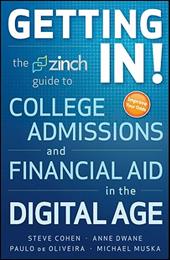Sign up for my FREE parent tips email and get my FREE Ebook on college financing! Or subscribe to my blog via email on the left.

As a recently empty-nested parent of three Montgomery County Public School children, Jay D. Bass, Ed.D., President Payment Partners, Inc., and his wife have written checks for many years for everything from AP tests, to trips to the Zoo. Using their children as “fee messengers” had never been a good strategy, as attested by the innumerable lost checks and forms mysteriously “eaten by the dog.” Writing checks in this day and age is an archaic process and a time-consuming burden on parents. Collection of these checks (and related forms) by school administrators and affiliated organizations such as PTSAs and booster clubs, is labor-intensive and often is fraught with confusion and lack of coordination.
Clearly, based on this story and others that have (and have not yet) appeared, there is abundant opportunity for fraud, theft, and mismanagement. Recent estimates for PTA fundraising alone indicate that over $4B changes hands in just elementary schools in the U.S. Coupled with fees for field trips, tests, membership dues, tickets, sport apparel, and other items, industry experts estimate that between $10-12B changes hands annually within the U.S. school system. Schools such as Thomas Jefferson, which offers a full array of extra-curricular activities, probably processes over $1.5M in cash and checks annually. That is a tremendous amount of money to be handled in such a cavalier and archaic manner.
Online payment processing systems for schools have been developed to provide a safe and convenient tool for parents to pay for school items. These systems offer a secure environment for paying, reporting, and administering school payments. My partner and I, also a parent of three public school children, recognized this need and recently developed an online payment system specifically for schools,
Pay4SchoolStuff.com. To date, many local PTSAs and booster clubs have subscribed with great enthusiasm. Why haven’t these systems been more widely adopted? Why are schools and school systems themselves so reluctant to change? How many more cases of theft will we read about before the benefits of online payment become obvious to everyone?
Pay4SchoolStuff offers the only comprehensive payment and management platform on the market that allows an organization to customize one payment menu for multiple school groups; eliminate all paper forms and registrations via a form creator; eliminate the need for postage; offer no-cost items to collect needed information in a multi- functional database; e-mail any account holders or create a directory in seconds; and take advantage of date, price and inventory controls. Pay4SchoolStuff is currently used by over 150,000 parents nationwide.









